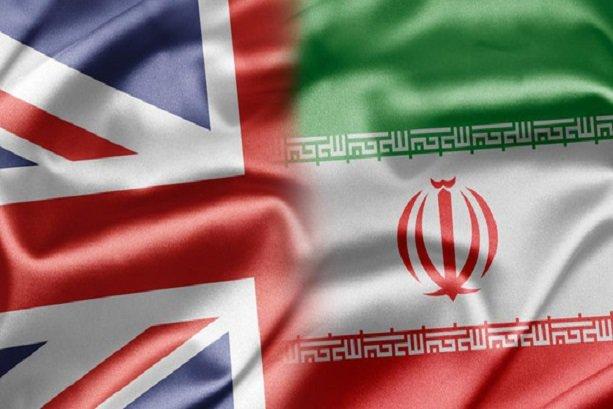Britain, France, and Germany have issued a stern warning to Iran, threatening to reimpose sanctions as the deadline for the country’s nuclear program negotiations approaches. The trio of European powers expressed growing concern over Tehran’s recent activities, signaling a potential escalation in diplomatic tensions if progress is not made soon. This development marks a critical juncture in efforts to revive the 2015 nuclear deal, with significant implications for regional stability and international security.
Britain France and Germany Signal Tough Stance as Iran Nuclear Deadline Approaches
In a significant diplomatic move, Britain, France, and Germany have signaled their readiness to reinstate stringent economic sanctions against Iran amidst escalating concerns over Tehran’s nuclear ambitions. The trio’s unified stance comes as international patience wanes following Tehran’s failure to comply with prior nuclear commitments, raising alarms within the global community about potential uranium enrichment advancements. The European powers have emphasized that the looming deadline represents a critical juncture, underscoring their commitment to ensuring that Iran’s nuclear program remains exclusively peaceful.
Key elements of their position include:
- Revocation of sanction relief: Rapid reinstatement of penalties lifted under the 2015 nuclear agreement if Iran continues its noncompliance.
- Enhanced monitoring: Calls for intensified inspections by the International Atomic Energy Agency to verify Iran’s activities.
- Diplomatic pressure: Coordination with international partners to maintain a united front in negotiations.
| Country | Position | Action Timeline |
|---|---|---|
| Britain | Strong diplomatic warnings | Immediate if deadline missed |
| France | Sanction enforcement | Within 72 hours post-deadline |
| Germany | Support for stricter inspections | Ongoing monitoring |
Implications of Renewed Sanctions for Iran’s Nuclear Ambitions and Regional Stability
The looming threat of renewed sanctions on Iran signals a critical shift in the geopolitical landscape of the Middle East. With Britain, France, and Germany warning of possible measures, Iran faces intensified scrutiny over its nuclear pursuits, raising alarms over the potential derailment of diplomacy. The reimposition of sanctions would likely restrict Iran’s access to crucial international financial networks and technology, thereby straining its ability to advance its nuclear program. This development adds fresh pressure on Tehran, complicating efforts to reach a negotiated solution and escalating tensions with Western powers.
The ripple effects of these potential sanctions extend beyond Iran’s borders, threatening to destabilize the region at large. Neighboring countries may respond with increased military readiness or forge new alliances, further polarizing an already volatile region. Additionally, global markets could feel the impact through fluctuations in oil prices and supply disruptions. Key implications include:
- Heightened regional security concerns as rival states reassess their defense postures.
- Economic repercussions potentially hampering reconstruction and development initiatives.
- Diplomatic challenges for global powers attempting to mediate peace and limit nuclear proliferation.
| Aspect | Potential Impact |
|---|---|
| Diplomatic Relations | Increased strain with European nations |
| Economic Stability | Sanctions-induced recession risks |
| Regional Security | Escalation of military posturing |
Diplomatic Channels and Strategic Measures to Prevent Nuclear Escalation
In a bid to prevent a destabilizing nuclear escalation, Britain, France, and Germany have prioritized revitalizing diplomatic channels with Iran. Efforts focus on reestablishing direct dialogue and leveraging backdoor communications through multilateral partners to encourage Tehran to comply with international nuclear agreements. These diplomatic maneuvers are underpinned by a shared commitment to seek peaceful resolution and avoid military confrontation.
Key diplomatic measures include:
- Engagement through the EU’s High Representative to maintain consistent communication with Iranian officials.
- Cooperation with the International Atomic Energy Agency (IAEA) to monitor Iran’s nuclear activities and ensure transparency.
- Facilitation of indirect talks involving the broader P5+1 group to bridge gaps in negotiation.
Concurrently, strategic measures designed to deter nuclear advancement without escalating tensions have been outlined, involving calibrated sanctions and clear diplomatic messaging. The three European powers have emphasized the role of economic pressure — applied judiciously — to create incentives for Iran’s compliance while preserving avenues for negotiation.
Below is a summary of the strategic framework poised to maintain equilibrium in the region:
| Strategic Measure | Objective | Anticipated Impact |
|---|---|---|
| Targeted Sanctions | Pressure key sectors linked to nuclear development | Limit Iran’s ability to expand nuclear capabilities |
| Diplomatic Signaling | Clarify consequences of non-compliance | Reinforce international unity and resolve |
| Multilateral Coordination | Align responses with global partners | Prevent unilateral escalation |
Recommendations for International Community to Strengthen Nonproliferation Efforts
To effectively curtail nuclear proliferation and uphold international security, the global community must adopt a multifaceted approach. This includes reinforcing diplomatic engagement with Iran through sustained dialogue and transparent negotiation frameworks. Strengthening verification measures, such as empowering the International Atomic Energy Agency (IAEA) with greater access and technological tools for monitoring Iran’s nuclear activities, remains paramount. Additionally, clear and consistent communication channels among international stakeholders can prevent misunderstandings and encourage cooperative compliance.
Furthermore, collective pressure through calibrated economic sanctions should be balanced with incentives that encourage Iran’s return to full adherence to the Joint Comprehensive Plan of Action (JCPOA). The international community should:
- Coordinate unified sanctions policies to avoid loopholes and ensure maximum impact.
- Invest in nuclear nonproliferation education and regional security dialogues in the Middle East.
- Support technological initiatives that promote peaceful nuclear energy while preventing weaponization.
| Key Area | Recommended Actions |
|---|---|
| Diplomatic Engagement | Regular high-level talks, transparency measures |
| Verification | Enhanced IAEA monitoring, on-site inspections |
| Sanctions | Coordinated sanctions, incentive mechanisms |
| Education & Dialogue | Regional security forums, public awareness |
The Way Forward
As the deadline for Iran’s nuclear program approaches, the joint warning from Britain, France, and Germany underscores the growing impatience among European powers over Tehran’s actions. With diplomatic efforts hanging in the balance, the prospect of reimposed sanctions signals a potential shift toward increased pressure on Iran to comply with international demands. The coming weeks will be critical in determining whether dialogue can prevail or if punitive measures will once again define the West’s approach to Iran’s nuclear ambitions. ABC News will continue to monitor developments closely.




